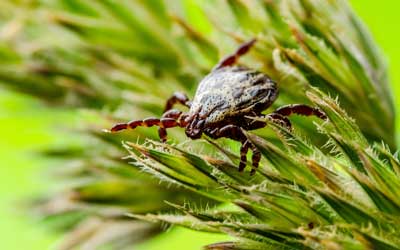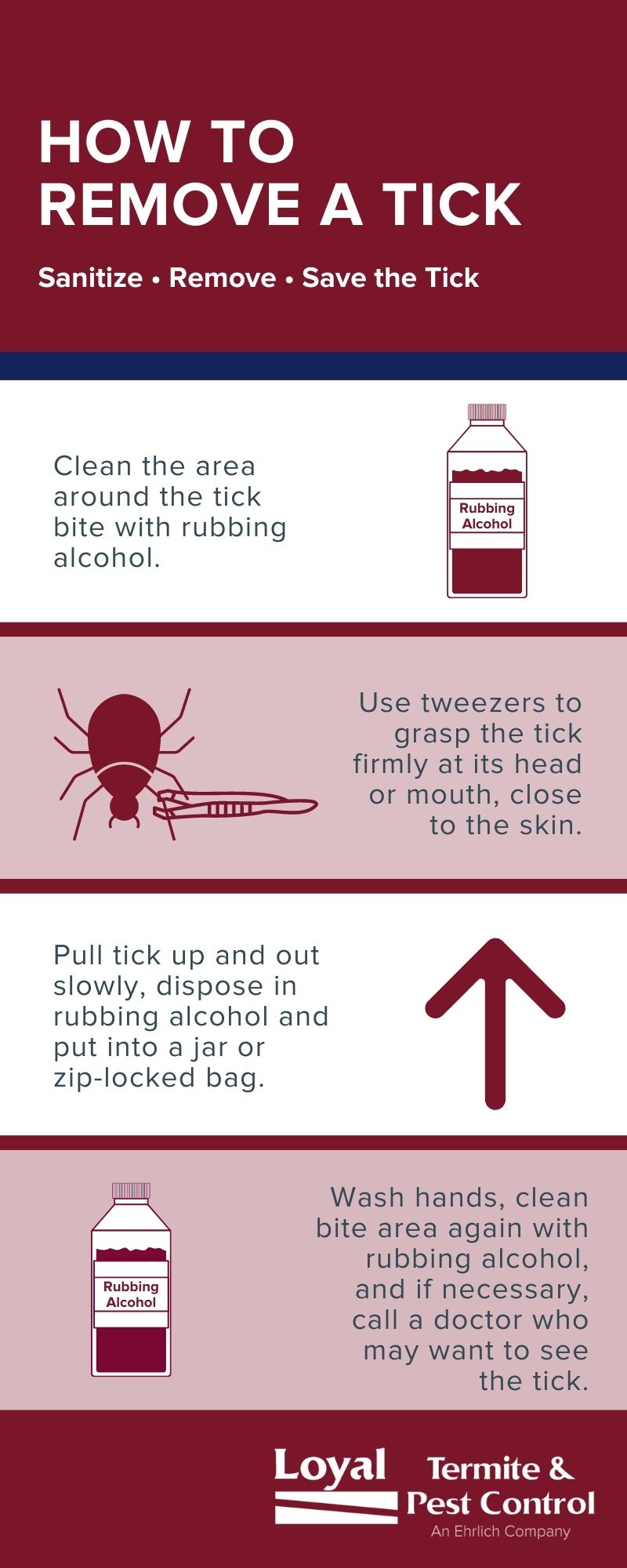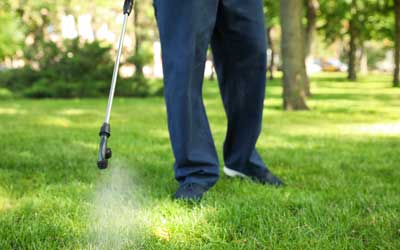 People often wait until it is too late to look into professional pest control services. No matter what pest you’re dealing with, trying to take care of an infestation on your own can be tricky. If you don’t approach it the right way, you could end up allowing the pests to multiply without any signs of slowing down. Many DIY strategies fall far short of a long-term solution, and improper use of professional pest control products by untrained individuals can lead to serious health risks.
People often wait until it is too late to look into professional pest control services. No matter what pest you’re dealing with, trying to take care of an infestation on your own can be tricky. If you don’t approach it the right way, you could end up allowing the pests to multiply without any signs of slowing down. Many DIY strategies fall far short of a long-term solution, and improper use of professional pest control products by untrained individuals can lead to serious health risks.
If you’ve been thinking about hiring an exterminator recently, read on for ten reasons to follow through. Our technicians at Loyal Termite & Pest Control have seen great success servicing homes and businesses around Eastern & Central Virginia and hope to help you, too!
DIY Pest Control and Health Concerns
Hiring certified pest control technicians can eliminate many health concerns that you might accidentally expose yourself to without their help. Our first three reasons to hire professional pest control are in the interest of your health:
- 1: Controlled pesticide use. A professional will only use pesticides as a last resort, and when they do, they will use them safely. Improper or untrained application of pesticides can expose you and your family to harmful toxins. Loyal Termite & Pest Control is proud to be a Green Pro Certified Company.
- 2: Decreased chance of illness. Many pests in Eastern & Central Virginia can pass on serious diseases through their bites or droppings. Technicians can help you avoid pest-related illnesses by handling the dirty work for you and your loved ones.
- 3: Less itching and scratching. Mosquitoes, ticks, fleas, spiders, bed bugs, and more pests in our local area can leave you with itchy bite marks. You don’t have to endure the bites every year! Hiring a professional pest exterminator to rid your home of these biting pests!
Need Pest Control Services?
Save Time with Professional Pest Control
Hiring professional pest control can eliminate extra tasks from your life in a more efficient manner. Our next three reasons have to do with saving you time:
- 4: Efficient solutions. Licensed technicians have the necessary experience to resolve pest problems quickly and efficiently, much more so than the average homeowner.
- 5: Less cleaning. Having pests in your home means constantly cleaning up pest-related debris. Getting rid of them altogether will greatly reduce the time you have to spend cleaning!
- 6: Safer structures. If you have rodents, termites, or carpenter ants living in your home, you’re likely inspecting your home constantly for new damage. Take that task off of your plate by hiring professionals to remove the pests and stop them from causing more damage.
How Professional Pest Control Helps You Stress Less
Being aware of a pest problem in your home comes with lots of stress. Our last four reasons pertain to your mental well-being:
- 7: Better sleep. Having a fear of bed bugs or spiders in your home can cause you to lose sleep. Get rid of this worry by finally getting rid of the pests themselves! Professionals also have options to monitor for these pests to catch a problem right at the start!
- 8: Save money. Sticking to DIY remedies can add up after a few unsuccessful attempts. A professional pest control company can come to remove certain pests in just one session given the right circumstances!
- 9: Learn about the process. Our technicians at Loyal Termite & Pest Control not only eliminate pests from your home but teach you about how they do it. We aim to give you the knowledge to avoid pests on your own going forward. Prevention is key!
- 10: Peace of mind. Once your pest infestation has been dealt with, it feels like you can finally breathe again! Don’t hesitate to have a professional rid of your pest problems—you don’t have to deal with them!
If you’re ready to take the first step towards a pest-free* home, contact your local pest control company. Our expert technicians at Loyal Termite & Pest Control have helped people all across Eastern & Central Virginia live pest-free* since 1960. For a free quote, contact us today!

 Attention, dog lovers in the beautiful state of Virginia! Are you tired of playing a never-ending game of hide-and-seek with ticks? While it may seem impossible to keep these blood-sucking pests away, with the right precautions you can help your furry friends avoid itchy bites all summer long. Read on to learn expert tips from the tick exterminators at Loyal Termite & Pest Control.
Attention, dog lovers in the beautiful state of Virginia! Are you tired of playing a never-ending game of hide-and-seek with ticks? While it may seem impossible to keep these blood-sucking pests away, with the right precautions you can help your furry friends avoid itchy bites all summer long. Read on to learn expert tips from the tick exterminators at Loyal Termite & Pest Control.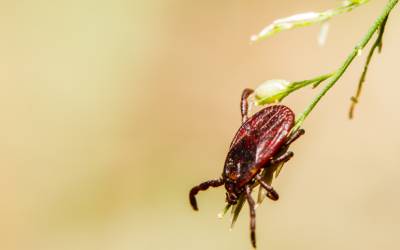 The end of summer might seem like the start of a stretch of pest-free* living, but this is often far from the case. Several kinds of pests actually thrive in or are even built for the conditions of the late summer here in Eastern & Central VA. If you want to secure pest-free* living situations for the last portion of your summer, you have to take consistent and targeted efforts to discourage bugs and wildlife from hanging out around your property. Read on to learn about common late summer pests and what you can do to stop them with our expert exterminators at Loyal Termite & Pest Control!
The end of summer might seem like the start of a stretch of pest-free* living, but this is often far from the case. Several kinds of pests actually thrive in or are even built for the conditions of the late summer here in Eastern & Central VA. If you want to secure pest-free* living situations for the last portion of your summer, you have to take consistent and targeted efforts to discourage bugs and wildlife from hanging out around your property. Read on to learn about common late summer pests and what you can do to stop them with our expert exterminators at Loyal Termite & Pest Control!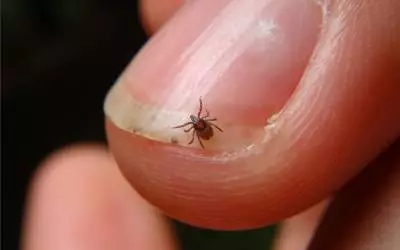 There’s not much creepier than finding a tick trying to lodge itself in your skin. However, the real danger associated with ticks is the potential for Lyme disease. Hiding in the dark corners of shaded woods and dense vegetation, ticks lurk waiting for the time to sneak up on potential hosts, possibly infecting them with bacteria that will lead to serious long-term ailments. To keep yourself safe from ticks and their diseases, it’s crucial to learn about their habits so that you can confidently keep away. Read on to learn more about ticks and Lyme disease in Eastern & Central VA with the tick exterminators at Loyal Termite & Pest Control!
There’s not much creepier than finding a tick trying to lodge itself in your skin. However, the real danger associated with ticks is the potential for Lyme disease. Hiding in the dark corners of shaded woods and dense vegetation, ticks lurk waiting for the time to sneak up on potential hosts, possibly infecting them with bacteria that will lead to serious long-term ailments. To keep yourself safe from ticks and their diseases, it’s crucial to learn about their habits so that you can confidently keep away. Read on to learn more about ticks and Lyme disease in Eastern & Central VA with the tick exterminators at Loyal Termite & Pest Control!